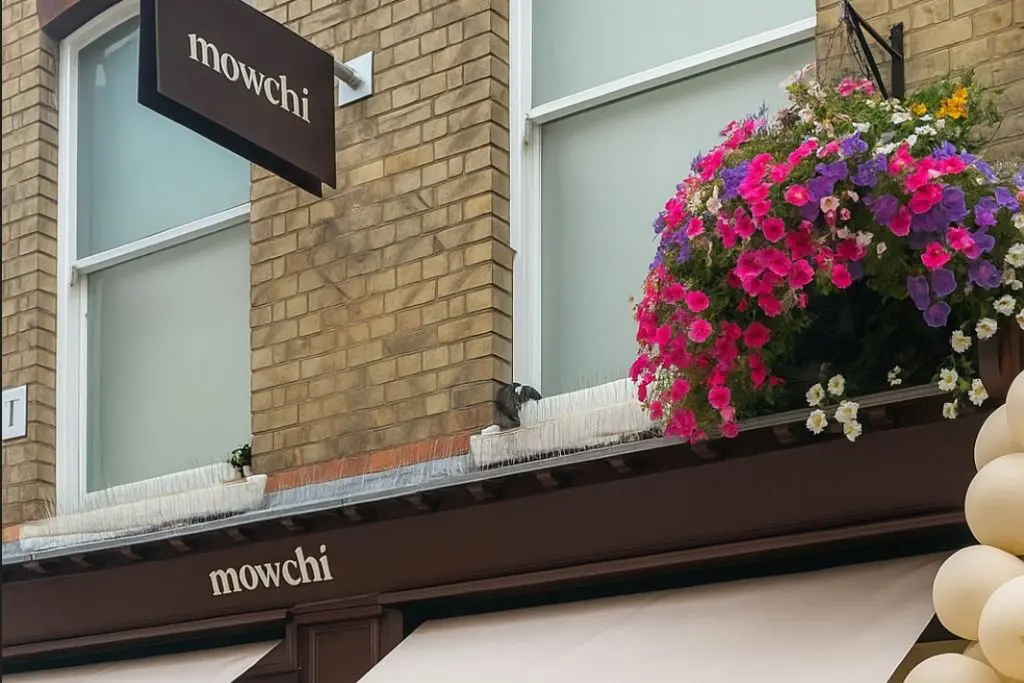Two new independent cafés have opened on Canterbury’s High Street. They have taken over long-vacant premises. The openings add fresh activity to a part of the city centre that has seen several closures in recent years.

Mowchi and Chiya sit directly opposite one another. They launched within weeks of each other. Their arrival brings previously empty sites back into use. It also reflects a wider movement of independent businesses filling gaps after the pandemic.
Mowchi, influenced by East Asian food and drink culture, now occupies a building once home to Po’ Boys. Po’ Boys was a sandwich shop that closed some years ago. Across the road, Chiya has taken over the premises of the former Boho Café Bar. It shut in 2020.
The two venues present different concepts. Mowchi’s menu includes bao buns, rice bowls, mochi ice cream, speciality coffees, matcha, and bubble tea. Its design follows a minimalist style. This is already seen in its other branches in London, Bradford, and Lakeside. Chiya, meanwhile, focuses on traditional coffee, pastries, and a community-oriented atmosphere. The contrast highlights how businesses with different approaches target varied sections of the same market.
Filling Empty Shops: A Sign of High Street Recovery?
The building that now houses Chiya stood empty for more than three years. Before its closure, Boho Café Bar was popular with Canterbury residents. Chiya’s reopening of the space is a revival of a well-used community location. The new owners, however, chose a more traditional format.
Mowchi began trading earlier in the summer. It used its launch event to attract customers with music and free samples. Its branding emphasises a consistent offer across its other sites. Canterbury is part of a wider national expansion for the company.
Both cafés operate at a time when many small hospitality businesses face challenges. These challenges come from inflation and energy costs. The Kent Invicta Chamber of Commerce has reported that businesses across the county saw higher operating expenses throughout 2024. Cafés and restaurants are particularly exposed to fluctuating food and staffing costs.
The Broader Retail Context in Canterbury
Canterbury’s High Street, like many across the UK, has seen closures of national chains. It has also seen the withdrawal of several independent traders. Empty properties, once viewed as a sign of decline, now attract smaller operators. These businesses seek central locations at lower rents than in previous years.
Jack Evans is the head of Canterbury Business Improvement District. He said the arrival of the two cafés demonstrated how variety could help bring people back to the city centre.
“For a high street to thrive, it needs diversity and steady footfall,” he said. “Mowchi and Chiya show two different approaches. One is a modern, niche offer. The other replaces something residents have missed. Both bring people in, and both contribute to consumer choice.”
The Federation of Small Businesses in Kent added that the willingness of owners to commit to long-vacant sites reflected confidence in the local economy. A spokesperson said: “Independent business owners continue to take risks despite rising costs. Support from councils and central government will remain essential if ventures like these are to last.”
Economic and Social Impact on the City
Hospitality venues provide social spaces for meetings, study, and work. This is especially true in university cities like Canterbury. Industry observers suggest that the addition of two new cafés in close proximity encourages competition. This in turn leads to improved services for customers.
The timing of the openings may also prove beneficial. The autumn term is beginning at the University of Kent and Canterbury Christ Church University. Thousands of students are returning to the city. The approach of the Christmas shopping season is expected to increase visitor numbers further.
Early reports indicate strong customer interest, particularly in Mowchi’s launch. However, the long-term performance of both businesses depends on broader economic conditions. Rising living costs continue to affect consumer spending. Footfall figures also remain uneven across many UK high streets.
The Future of High Street Cafés
Analysts will watch how both cafés adapt during their first year of trading. For Mowchi, the Canterbury site is part of an expansion strategy. For Chiya, success depends on rebuilding loyalty at a location many residents associate with the former Boho Café Bar.
Both cases illustrate how independent operators contribute to the gradual reoccupation of empty units in Kent’s retail centres. Pressures on the sector remain considerable. Still, local business organisations regard the reuse of long-idle properties as a positive signal.
As Evans from Canterbury BID put it: “Every time a vacant shop is brought back into use, it helps the wider area. The more varied the offer, the more likely it is that people will see the high street as a place to spend time.”
For now, Canterbury’s High Street has gained two additional venues. They offer contrasting styles. Each is seeking to establish itself in a competitive market. Their progress will provide a test of how independent cafés can sustain themselves amid current economic conditions and shifting consumer habits.



